Not an ordinary mortal by any means.
Who’s Who in Peace Intelligence: Michael Vlahos
Alpha V-Z, Cultural Intelligence, Peace Intelligence
Michael Vlahos is Professor of Strategy at the United States Naval War College. His is the author of Fighting Identity: Sacred War and World Change, an analysis of how war — as sacred ritual — shapes collective identity: And what it means in culture to be human. His career includes service in the Navy, the CIA, Johns Hopkins SAIS, and the State Department. An historian-anthropologist of war, he focuses on the relationships between civilizations, and the creative syncretism that is at the heart of change in history. He appears and posts on Huffington, the National Journal, and the John Batchelor Radio program (WABC).
Selected Contributions
Part I: America, Enemy of Change, Midwife of the Future (Kosmos)
Part II: Dark Lord, Dark Victory: America's Dark Passage (Kosmos)
Review: Fighting Identity–Sacred War and World Change (The Changing Face of War)
Reference: Michael Vlahos on Imperial Court
Current Commentaries at Huffington Post
2004 Vlahos (US) The Muslim Renovatio and US Strategy
Colonial Britain, Neocolonial America?
Why America Is Like Imperial Spain (Part I)
Worth a Look: Strong Signal–Anger in the Heartland
Cultural Intelligence, Worth A Look
Phi Beta Iota: America is divided into Nine Nations culturally and geographically, 50 States that comprise the United STATES of America, many now considering nullification and some considering secession, and two parties that shut out one third or more of the electorate and electoral candidates. Sadly, Americans agree on 80% of the issues but spend all of their time in conflict on the 20% that are ideologically rooted, while also refusing to see that the only thing America needs to get back on track is Electoral Reform–restoring the integrity of the connection between citizens, their taxes, and how their government spends those taxes. Below, from Marcus Aurelius, is a “strong signal” representing anger in the heartland.
Signs Northbound on I-5 near Chehalis, WA (88 miles south of Seattle )
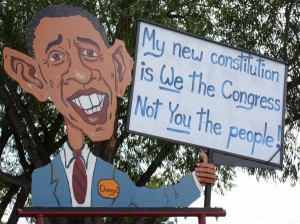
Click on the Image to see the other eleven.
Rememberance: ‘People’s History’ Author Howard Zinn Dies at 87
Alpha V-Z, Collective Intelligence, Cultural Intelligence
Howard Zinn, an author, teacher and political activist whose leftist “A People's History of the United States” became a million-selling alternative to mainstream texts and a favorite of such celebrities as Bruce Springsteen and Ben Affleck, died Wednesday. He was 87.
Zinn died of a heart attack in Santa Monica, Calif., daughter Myla Kabat-Zinn said. The historian was a resident of Auburndale, Mass.
Published in 1980 with little promotion and a first printing of 5,000, “A People's History” was — fittingly — a people's best-seller, attracting a wide audience through word of mouth and reaching 1 million sales in 2003. Although Zinn was writing for a general readership, his book was taught in high schools and colleges throughout the country, and numerous companion editions were published, including “Voices of a People's History,” a volume for young people and a graphic novel
Phi Peta Iota: Click on the photo for the full story. We take exception to the labeling of Howard Zinn as “left wing.” He was neither left nor right, he was honest, and that is not something one can say about either of the two political parties that exclude half the eligible voters from the process and that loot the treasury on behalf of special interests. It is truly a terrible indictment of society when truth-tellers are labeled in any manner
Fedor Dostoevsky: A man who lies to himself, and believes his own lies, becomes unable to recognize truth, either in himself or in anyone else.
See also:
Continue reading “Rememberance: ‘People's History' Author Howard Zinn Dies at 87”
Who’s Who in Earth Intelligence: Leonardo Bonnani
Alpha A-D, Collective Intelligence, Commercial Intelligence, Cultural Intelligence, Earth Intelligence, Gift Intelligence
Leo is a doctoral candidate at the MIT Media Lab, a designer and an artist. He teaches the MIT class Future Craft: Radical Sustainability in Product Design on the social aspects of mass design. You can also find his blog, photos, and videos. To find out more and for contact information, download his resume.
PhD Thesis Proposal: “A Collective Approach to Sustainable Design”
SourceMap.org visible supply chains
Phi Beta Iota: We are deeply inpressed by this individual, who crosses harnesses Collective Intelligence to achieve Commercial Value in both Cultural and Earth contexts. His idea is infinitely scalable, infinitely valuable, and applicable to every single product and service on the planet, ultimately to included planned giving at the item level.
Who’s Who in Cultural Intelligence: Scott Atran
5 Star, Alpha A-D, Cultural Intelligence, Culture, Research, Worth A Look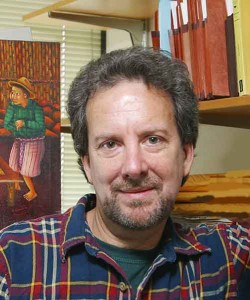
Research and teaching interests are centered in the following areas: Cognitive and linguistic anthropology, ethnobiology, environmental decision making, categorization and reasoning, evolutionary psychology, anthropology of science (history and philosophy of natural history and natural philosophy); Middle East ethnography and political economy; natural history of Lowland Maya, cognitive and commitment theories of religion, terrorism and foreign affairs.
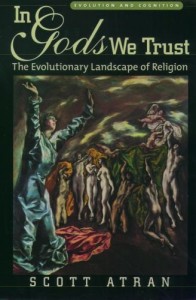
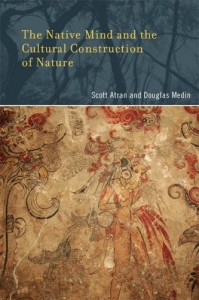

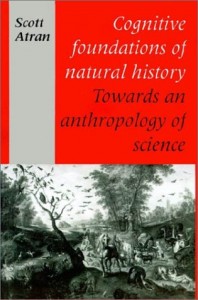
Worth a Look: Born to Be Good–Human Compassion
4 Star, Consciousness & Social IQ, Cultural Intelligence
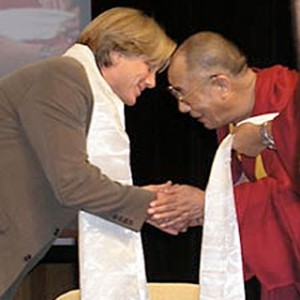
Forget Survival of the Fittest: It Is Kindness That Counts
A psychologist probes how altruism, Darwinism and neurobiology mean that we can succeed by not being cutthroat.
Dacher Keltner, director of the Berkeley Social Interaction Laboratory, investigates these questions from multiple angles, and often generates results that are both surprising and challenging. In his new book, Born to Be Good: The Science of a Meaningful Life, Keltner weaves together scientific findings with personal narrative to uncover the innate power of human emotion to connect people with each other, which he argues is the path to living the good life. Keltner was kind enough to take some time out to discuss altruism, Darwinism, neurobiology and practical applications of his findings with David DiSalvo.
Top Amazon Review (Three Stars)
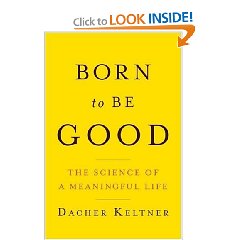
Born to Be Good is something less than the subtitle (The Science of a Meaningful Life) suggests. More accurately, it covers the science of certain selected emotions and, more narrowly still, primarily the research of certain psychologists, bolstered by a bit of neuroscience. Most specifically, it focuses in large part (although not exclusively) on the work of Paul Ekman (the author's mentor) and the research of Keltner himself (along with his students).
Darwin himself observed that sympathetic communities are more likely to produce healthier offspring than cruel ones. Human history shows that compassion always pulls through in times of war. And new studies of our body's physiology show that caretaking emotions are wired within our nervous systems.
Emotion has often been downplayed, restrained, indeed even belittled, in comparison to intellect. We must suppress emotion and let intellect roam free if we are to discover new things, solve life's riddles, and survive in an increasingly competitive and academic business world. Excitement, it is said, kills. Although true and essential when, say, doing a heart bypass, maneuvering a crippled jetliner into safe landing, or simply driving down the highway, we should not forget that — as the book so plainly states — had it not been for our emotions, we as a species might not be here today.
See also:



